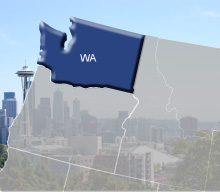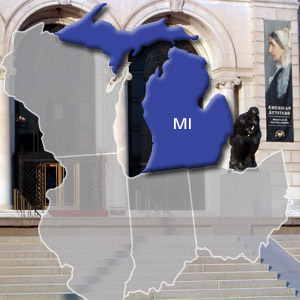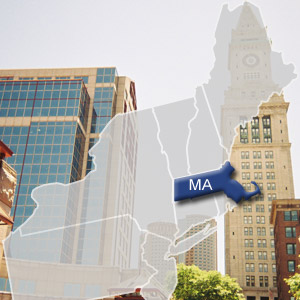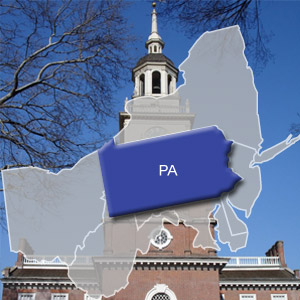Keeping the taxman at bay
Coast to coast: AOPA saves members' hard-earned dollars
Nothing points the way to a fat cat like an airplane. And when budget shortfalls plague states—they faced an estimated total budget gap of $41 billion this fiscal year—many introduce tax proposals aimed squarely at general aviation in hopes of finding a quick fix.
We know that premise couldn’t be further from the truth. Many pilots and aircraft owners are barely breaking even, trying to make a living in aviation based on their passion, not their desire to become a millionaire overnight … or their lifetime. Others use aircraft as transportation tools to help make their businesses competitive and successful. And some scrimp and save to fly for fun, often driving a dilapidated 20-year-old car and refraining from other hobbies like golf or boating to devote any savings to soaring.
Unfair tax proposals can crush all of that—putting pilots, mechanics, and other industry workers out of work—and still not help a state’s bottom line. That’s why AOPA Director of State Government Affairs Mark Kimberling dedicates his time to educate state legislators on the benefits of GA and the detriment of their well-intentioned, yet ill-advised tax proposals would have not only on the aviation industry but also on the state’s economy.
“These tax proposals are most often conceived in a vacuum based on perceptions—or misperceptions really—about GA, without careful examination of all the economic factors,” Kimberling said. “Legislators are looking for an immediate source of revenue, and GA aircraft are often viewed as the proverbial low-hanging fruit to get it.”
 GA pays its fair share
GA pays its fair share
The big picture is that pilots and aircraft owners are already paying a healthy cumulative amount in state taxes, on top of the federal fuel excise tax that will eventually increase with a long-term FAA funding deal. Nine different types of state taxes are currently imposed on aircraft owners: excise, fuel sales, aircraft sales, registration, aircraft personal property, aircraft parts sales, aircraft use, maintenance labor sales, and fuel excise taxes. These days, only a small percentage, if any, of these taxes are reinvested in aviation in most states.
In Washington and Connecticut, proposals to add more taxes would have devastated GA in these states, forced businesses and aircraft to nearby states, and left the states in even worse economic condition in terms of jobs and revenue.
AOPA and Washington members defeated a proposal the past two legislative sessions that would have taxed 0.5 percent of an aircraft’s taxable value “for the privilege of using any aircraft in the state.” In Connecticut, AOPA, local business owners, and the Connecticut Business Aviation Group rallied together to convince Gov. Dannel P. Malloy to drop a proposed personal property tax—2 percent of the first 70 percent of an aircraft’s assessed value each year—from the state’s two-year budget package.
 In both cases, the supposed revenue increase was to be used to help fund health care and other general fund programs.
In both cases, the supposed revenue increase was to be used to help fund health care and other general fund programs.
“We completely recognize the enormous challenge states have faced in finding revenue for vital state services and programs,” Kimberling said. “For some, taxing private aircraft to fund healthcare seems like a palatable and productive paradigm at first glance. Upon closer examination of the industry, it is clear that there is a point of diminishing return in setting tax rates on an already strained industry, not only in terms of the resultant lost jobs and decreased economic activity, but also in terms of an actual net loss in state revenue collection due to business and aircraft migrations and decreased flying activity. This leaves even less general fund money for the very programs they are struggling to support.”
For example, consider the fees that would be associated with owning a 2011 Piper Meridian in Connecticut under the proposal. The owner would pay the existing $700 aircraft registration fee—one of the highest rates in the nation—and then also be hit with a personal property tax of $29,001. Many aircraft owners would move their aircraft next door to Rhode Island, where the registration fee is $160 and there’s no personal property tax on aircraft.
 Renters feel pain too
Renters feel pain too
Flight schools, fixed-base operations, and maintenance facilities have tight operating margins, meaning any increases in any of the many operating costs inevitably get passed on to the customer—aircraft owners and renters alike.
A Michigan proposal to significantly increase the excise tax on aviation fuel from a flat fee of 3 cents per gallon to a percentage-based rate of the wholesale price of fuel was debated over the last few years. The justification for this measure was largely based on the fact that the excise tax had not been increased in many years. Proponents of the measure, however, failed to consider the fact that the state also imposes a 6-percent sales tax on fuel, which—combined with the excise tax—already amounts to one of the highest cumulative state fuel tax rates in the nation. Not a penny of the sales tax is currently dedicated to aviation.
“With current fuel prices, pilots are already paying about 40 cents a gallon in state taxes alone in Michigan. With this increase, we would have been looking at an additional 20 cents per gallon, with the prospect of even higher rates when oil prices spike—hitting pilots and businesses the hardest when they can least afford it.”
 After working through the issue with the legislature, not only has the proposal to increase the tax rate been dropped, but there is now legislation pending, introduced by state Rep. Dave Agema, that would reinvest a portion of the existing sales tax in aviation.
After working through the issue with the legislature, not only has the proposal to increase the tax rate been dropped, but there is now legislation pending, introduced by state Rep. Dave Agema, that would reinvest a portion of the existing sales tax in aviation.
But fuel taxes are just one cost that affects everyone in the GA community. So do taxes on aircraft sales, parts, and labor. While 31 states have sales tax exemptions on parts and/or labor for maintenance on GA aircraft weighing less than 12,500 pounds to attract business, others see charging a tax as a way to increase revenue.
This year, AOPA worked to keep aircraft exempt from the Massachusetts 6.25-percent sales tax, and is currently advocating for a bill in Pennsylvania that would exempt aircraft sales, parts, and labor from a 6-percent tax. In previous sessions, AOPA staved off a bevy of other onerous state tax proposals— including an Illinois “luxury” tax that would have imposed a 6-percent tax, on top of all other state and fees and taxes, on all GA aircraft along with “fur clothing and jewelry.”
 State rights wrong, reverses tax
State rights wrong, reverses tax
States might do well to learn from Maine, which this year chose to embrace the GA industry, rather than stymie it, by repealing the infamous aircraft use-tax and the sales taxes on purchases and maintenance.
Now, not only are $26,000 use-tax bills for visiting aircraft a thing of the past, but aviation business is already picking up with several companies recently announcing plans for significant hiring and expansion.
Big picture
As the public tightens its belt because of fears of another recession, states are struggling to raise revenues through taxes. That means AOPA will have its work cut out again next year to protect GA from unreasonable tax hikes.
“Our message to state legislators is clear. We are willing to pay our share of taxes, but we want to ensure that the taxes are measured and will actually benefit the state—and, specifically, the aviation system,” Kimberling said. “Everybody loses when poor tax policy passes.
 “We’re also going to continue our education campaign. The more decision makers understand general aviation, the less they view us as a mere revenue target. And, often, they come around to see us as the economic asset we are to their states.”
“We’re also going to continue our education campaign. The more decision makers understand general aviation, the less they view us as a mere revenue target. And, often, they come around to see us as the economic asset we are to their states.”
Members should keep an eye on their inboxes for “Action Alerts” next year. The association notifies members when they need to step up to support or oppose tax measures in their respective states.



